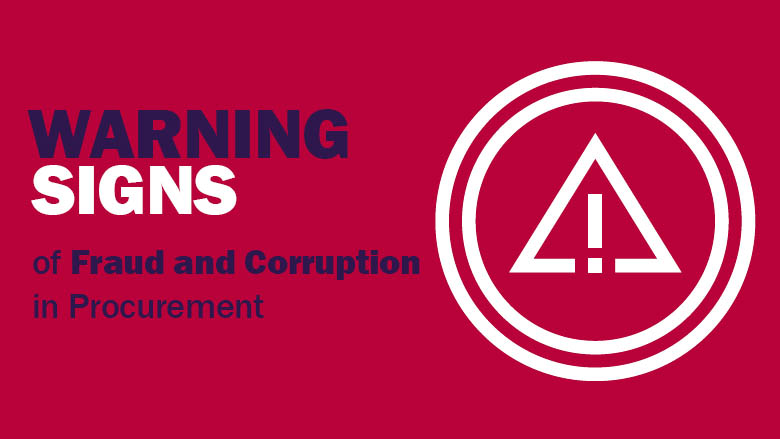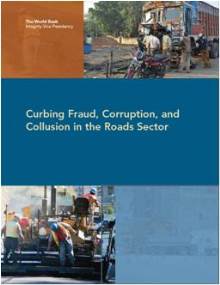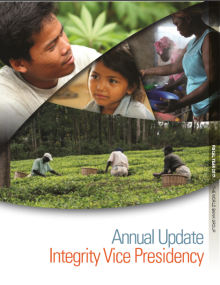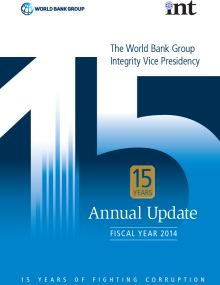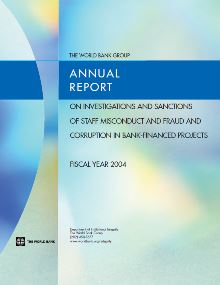External Investigations
Complaint Intake and Preliminary Investigation
INT performs an initial assessment of every complaint that it receives at intake. This assessment determines whether the complaint relates to a sanctionable practice in World Bank Group-financed projects and falls within INT’s jurisdiction. Complaints outside of INT's jurisdiction are redirected to other areas of the World Bank Group or to external entities as appropriate. In FY19, nearly 85 percent of received complaints were determined to be outside INT’s mandate or were directed to the proper channel for redress.
Complaints that fall under INT's jurisdiction undergo a preliminary investigation to determine if they are credible and of sufficient gravity to warrant opening a full investigation. In determining whether to move from a preliminary investigation to a full investigation, INT considers a number of factors, including, but not limited to: the seriousness of the allegations; the potential development impact of the alleged misconduct; the credibility of the complainant; the presence or availability of corroborating evidence; and the amount of project and contract funds involved. When a complaint does not reach the threshold for a full investigation, INT works with World Bank Group operational staff to address the issues raised.
Investigation of Cases
Through investigations, INT ascertains whether firms and/or individuals have engaged in one of the World Bank Group's five sanctionable practices. An INT investigation is administrative in nature and the standard of proof used to substantiate an investigation is akin to a "balance of probabilities," rather than the criminal standard of "beyond a reasonable doubt." If INT finds sufficient evidence to conclude that it is more likely than not that the alleged conduct, or other sanctionable conduct, occurred, then the matter is deemed substantiated. The allegation is considered unsubstantiated if there was insufficient evidence to prove or disprove it, and unfounded if the allegation has no basis in fact.
Investigation Reports
When INT substantiates an investigation, it produces a Final Investigation Report (FIR). FIRs are sent to regional management and relevant operational staff for comment before being finalized. Final FIRs are submitted to the World Bank Group President.
FIRs form the basis for two other INT outputs: referral reports and redacted reports. INT sends referral reports to relevant national authorities if evidence indicates that the laws of a World Bank Group member country may have been violated. Redacted reports are provided to the World Bank Group's Board of Executive Directors and, after the completion of any related sanctions proceedings, posted on INT’s website. These reports provide information about the allegations, methodology, and findings of an investigation, as well as any action taken by the WBG.
In rare cases, INT will produce a FIR even if there is not reasonably sufficient evidence to substantiate a complaint - for example, if INT believes that the investigation unearthed important lessons that should be shared with colleagues in the World Bank Group.
Internal Investigations
To maintain its credibility in the global anti-corruption arena, the integrity of the World Bank's own operations is of the utmost importance. In addition to investigating allegations of fraud and corruption involving Bank Group staff and corporate vendors, the Internal Investigations Unit mainstreams lessons learned through case studies, training and other activities and participates in outreach programs as a member of the Bank Group's Internal Justice System to promote the reporting, detection and prevention of fraud and corruption within the Bank Group's corporate arena.
Examples of allegations against staff within the Internal Investigations Unit's investigative mandate include abuse of position for personal gain, misuse of Bank Group funds or trust funds, embezzlement, fraud, corruption and collusion, involving either Bank Group operations or in the administration of Bank Group business, and attendant conflicts of interest or lesser included acts of misconduct.
The Internal Investigations Unit is also responsible for investigating allegations against Bank Group corporate vendors involving fraud, corruption, collusion, coercion, or obstructive practices in support of "vendor eligibility reviews," leading to corporate debarment proceedings.


